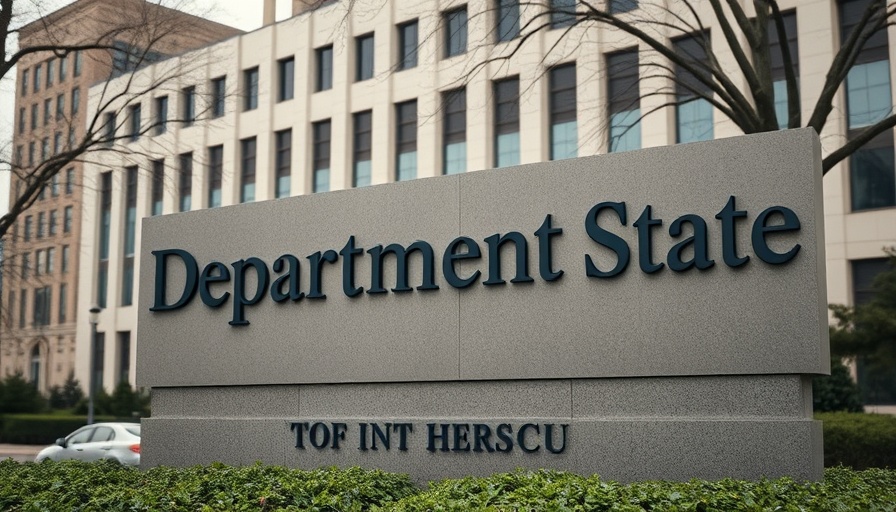
The Shift in U.S. Diplomacy: Understanding the Massive Layoffs
In a surprising move, the U.S. State Department has announced a significant reduction in its workforce, targeting over 1,350 positions. This decision is part of a broader shake-up initiated by the Trump administration, aiming to reshape its diplomatic corps at a time of increasing global tensions and changing international relations.
Context: Why Now?
The layoffs will impact diplomats and support staff alike, raising questions about the administration's approach to foreign policy and diplomacy. The decision appears to coincide with a continued push by the Trump administration for a more isolated and America-first stance on international issues, focusing resources internally rather than maintaining extensive diplomatic engagements worldwide.
The Workforce of the State Department: The Human Side of Layoffs
As the State Department moves to downsize, the emotional and practical ramifications for those affected cannot be understated. Many employees have dedicated their careers to public service in often high-stakes roles, representing U.S. interests abroad. The loss of such experienced personnel could impact America's ability to navigate complex geopolitical landscapes.
Analyzing the Impact on U.S. Investments
This shake-up within the diplomatic corps raises conjectures regarding U.S. credibility on the global stage. Without robust diplomatic relations, investment strategies may also feel the effects. Businesses reliant on international partnerships might need to reassess their approaches in markets heavily influenced by U.S. foreign policy.
Investment Strategies in Light of Changing Policies
For investors, understanding the implications of such significant workforce changes is vital. Investment strategies could need recalibrating to adapt to the uncertainties in international relations. Navigating the shift might include a focus on stocks in industries less dependent on diplomacy or engaging in portfolio diversification strategies that can buffer against market volatility. Professionals might consider sectors such as technology or sustainable investments, as these areas often navigate well during geopolitical unrest.
Future Predictions: A New Era for the State Department
Looking ahead, experts speculate on the potential long-term implications of reduced personnel on U.S. diplomacy. Some argue that the Department may face challenges in fulfilling its global commitments, which could lead to increased tensions in critical regions. Alternatively, proponents of the layoffs argue that a leaner department may enhance efficiency in decision-making and allow for a more effective focus on pressing issues.
Conclusion: A Call for Reevaluation and Strategic Planning
As the State Department undergoes this major transformation, stakeholders — including investors and policymakers — must stay informed and ready to adapt. Whether this workforce reduction will lead to increased risks or open up new investment opportunities remains to be seen. Understanding the broader ramifications, both personally for those affected and for the future of international relations, is crucial. It's time for individuals and entities to reassess their strategies, ensuring they remain aligned with the shifting landscape.
 Add Row
Add Row  Add
Add 



Write A Comment